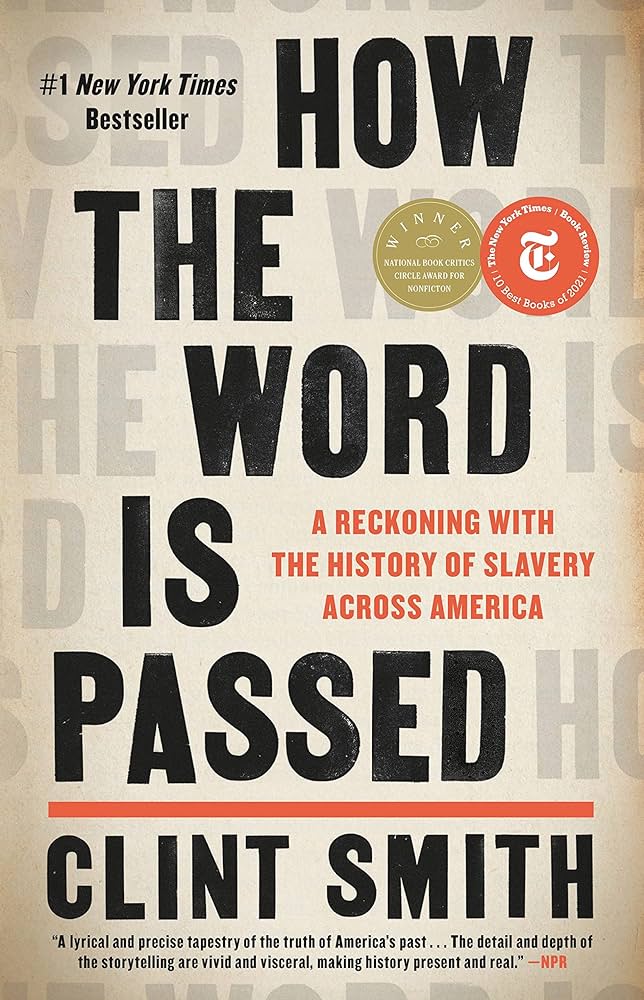Please join the Racial Justice Ministry Book Group discussion on How the Word is Passed: A Reckoning with the History of Slavery, by Clint Smith. Each chapter is a self-contained piece, so if you missed the first chapter you will not be at a disadvantage.
Monday, November 13, Chapter 3, “An open book, up under the sky,” The Whitney Plantation, pp. 52-84. The Whitney Plantation is located in Wallace, Louisiana.
Monday, December 11, Chapter 4, “I Can’t Change What Happened Here,” Angola Prison, pp. 85-117. Louisiana State Penitentiary is known as Angola.
Monday, January 8, Chapter 5, “I Don’t Know if it is True or Not but I Like it,” Blandford Cemetery, pp, 118-172. Blandford Cemetery is one of the largest mass graves of Confederate servicemen.
Monday, February 12, “Our Independence Day,” Galveston Island, pp. 173-206. An annual celebration of the June 19, 1865, reading of the order announcing the end of slavery takes place in Galveston. The celebration is called Juneteenth.
Monday, April 8, “One Slave is too much,” Gorée Island, pp. 239-269. Clint Smith visits the small island off the coast of Dakar, Senegal. Gorée Island had been controlled by several European countries between the 1440s and 1960 and used by them in the slave trade until 1848.
Monday, May 13, “I lived it,” Epilogue, pp.270-290. In this final section, the author reflects on the impact of enslavement, Jim Crow, and current attitudes towards the concept of race on his own family’s history.
The Racial Justice Ministry meets by Zoom from 7:00 pm – 9:00 pm. To receive the link, email to sfxbookgroup@sfxavior.org.

